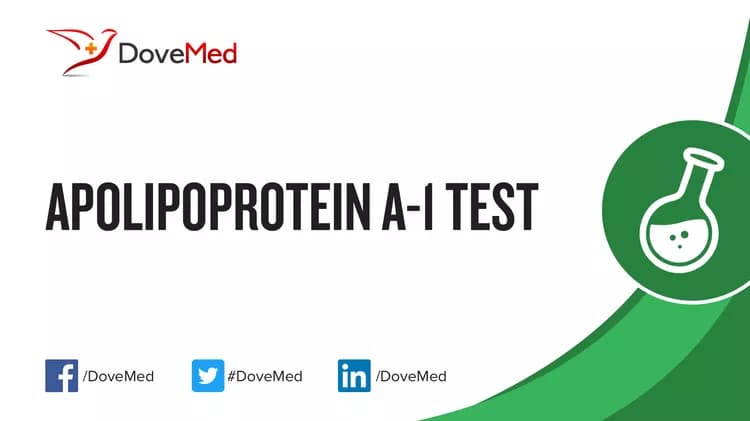What are the other Names for this Test? (Equivalent Terms)
- Apo A-1 Blood Test
What is Apolipoprotein A-1 Test? (Background Information)
- Apolipoprotein A-1 or Apo A-1, is a type of protein necessary for the regulation of fat metabolism
- Apolipoproteins are protein components of lipoproteins (“apo-“ meaning detached). Lipoproteins are carriers of cholesterol and fats. They are necessary because cholesterol and fats are not soluble in blood, and would otherwise coagulate and clog blood vessels
- There are different kinds of lipoproteins, depending on the ratio of protein to fat:
- Very-low density lipoproteins (VLDL) and chylomicrons contain high amounts of fat per protein
- High-density lipoproteins (HDL) contain less fat per protein. They transport fat and cholesterol from the body back to the liver for metabolism. Thus, they are called “good”
- Low-density lipoproteins (LDL) transport fat and cholesterol from the liver to the rest of the body. Thus, they are called “bad”
- Lipoproteins contain apolipoproteins - the type of apolipoprotein contained by a lipoprotein determines, where the lipoprotein will go. This is because, cells at the destination recognize lipoproteins by the apolipoproteins they contain
- Apolipoprotein A-1 is contained by HDL, the “good” molecule. High Apo A-1 levels correlate with a low risk of coronary artery disease
- The Apolipoprotein A-1 Test is a blood test that measures the levels of Apo A-1 in blood. It is used as a marker for protection against coronary artery disease, and may be a stronger indicator of HDL levels
What are the Clinical Indications for performing the Apolipoprotein A-1 Test?
Clinical indicators for performing the Apolipoprotein A-1 Test include evaluating the risk for coronary artery disease (CAD), which is marked by:
- Chest pain or discomfort
- Shortness of breath
- Fatigue
- Jaw pain
- Family history of cardiovascular disease
How is the Specimen Collected for Apolipoprotein A-1 Test?
Following is the specimen collection process for Apolipoprotein A-1 Test:
Sample required: Blood
Process: Insertion of a needle into an arm vein.
Preparation required: No special preparation is needed prior to the test.
What is the Significance of the Apolipoprotein A-1 Test Result?
The significance of Apolipoprotein A-1 Test is explained:
- High Apo A-1 levels may indicate:
- Congenital hyper-A-lipoproteinemia
- Weight loss
- Low Apo A-1 levels may indicate:
- Coronary artery disease
- Chronic kidney disease
- Diabetes
- Smoking
- A diet rich in carbohydrates and polyunsaturated fats
The laboratory test results are NOT to be interpreted as results of a "stand-alone" test. The test results have to be interpreted after correlating with suitable clinical findings and additional supplemental tests/information. Your healthcare providers will explain the meaning of your tests results, based on the overall clinical scenario.
Additional and Relevant Useful Information:
- If certain congenital defects exist, then these may affect the Apo A-1 or metabolic enzymes. This factor may influence the results of the Apolipoprotein A-1 Test
- The Apo A-1 Test is often performed alongside other tests, such as a triglycerides test. These tests may require fasting for 12 hours
Certain medications that you may be currently taking may influence the outcome of the test. Hence, it is important to inform your healthcare provider, the complete list of medications (including any herbal supplements) you are currently taking. This will help the healthcare provider interpret your test results more accurately and avoid unnecessary chances of a misdiagnosis.
Related Articles
Test Your Knowledge
Asked by users
Related Centers
Related Specialties
Related Physicians
Related Procedures
Related Resources
Join DoveHubs
and connect with fellow professionals


0 Comments
Please log in to post a comment.